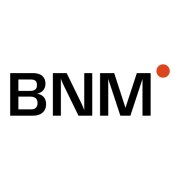Best Debt Capital Markets Lawyers in Vilnius
Share your needs with us, get contacted by law firms.
Free. Takes 2 min.
List of the best lawyers in Vilnius, Republic of Lithuania
About Debt Capital Markets Law in Vilnius, Republic of Lithuania
Lithuania, with Vilnius as its dynamic capital, has developed a sophisticated Debt Capital Markets (DCM) sector, emerging as a noteworthy destination for issuers and investors in Central and Eastern Europe. Debt Capital Markets involve the issuance, buying, and selling of debt instruments such as bonds, notes, and commercial paper, providing companies and public entities with alternatives to traditional bank lending. The sector in Vilnius is characterized by its integration with EU regulatory standards, transparency, and ongoing efforts to attract both local and international participants. The Lithuanian regulatory framework ensures investor protection, efficient market functioning, and compliance with European Union financial markets legislation.
Why You May Need a Lawyer
Engaging in Debt Capital Markets transactions in Vilnius can be complex due to regulatory, transactional, and compliance considerations. You may need a lawyer if you are:
- Issuing corporate bonds or notes on local or international markets
- Participating in private placements or structured debt transactions
- Ensuring compliance with Lithuanian and EU securities regulations
- Negotiating with investors, underwriters, or market intermediaries
- Dealing with potential disputes, defaults, or debt restructuring
- Seeking clarity on disclosure, reporting obligations, or market abuse rules
- Assessing cross-border issues related to listing or trading debt instruments
- Requiring due diligence and documentation review for DCM operations
In these scenarios, specialized legal advice is crucial for risk mitigation, regulatory compliance, and successful transaction execution.
Local Laws Overview
Debt Capital Markets in Vilnius are primarily governed by the Law on Securities of the Republic of Lithuania, which aligns with key EU directives such as MiFID II, the Prospectus Regulation, and the Market Abuse Regulation. The main features of the local framework include:
- Prospectus requirements for public offers or listings of debt securities, with exemptions for private placements or certain small issuances
- Oversight by the Bank of Lithuania, the main financial markets regulator
- Mandatory disclosure and ongoing reporting obligations for issuers
- Clear rules on market abuse, insider trading, and investor protection
- Procedures for registration, approval, and listing of debt instruments on the Nasdaq Vilnius exchange
- Special provisions for securitization, covered bonds, and other structured finance products
- Cross-border passporting within the EU Single Market
Investors and issuers must also consider general corporate, insolvency, tax, and anti-money laundering laws when planning and executing DCM deals in Lithuania.
Frequently Asked Questions
What types of debt securities can be issued in Vilnius?
Common debt instruments issued in Vilnius include corporate bonds, government bonds, notes, commercial paper, and structured debt products like covered bonds and securitized notes.
Who regulates the Debt Capital Markets in Lithuania?
The Bank of Lithuania supervises and regulates financial markets, including DCM activities, ensuring compliance with national and EU requirements.
Is a prospectus always needed to offer bonds in Lithuania?
A prospectus is required for public offerings and admissions to regulated markets, subject to certain exemptions such as private placements or small-size issuances.
What is the main local stock exchange for debt instruments?
Nasdaq Vilnius is the principal exchange for listing and trading debt securities in Lithuania.
Are foreign issuers allowed to issue debt securities in Vilnius?
Yes, foreign issuers can issue and list debt securities in Lithuania, often benefitting from the EU passporting regime if they are from EEA countries.
What ongoing obligations do bond issuers face?
Issuers are subject to continuing disclosure requirements, periodic financial reporting, and must comply with market abuse and investor protection regulations.
How are investor rights protected?
Lithuanian law incorporates comprehensive EU-level investor protection rules, including information transparency, fair treatment, and avenues for dispute resolution.
Can Lithuanian bonds be listed in other EU countries?
Yes, using the EU passporting system, Lithuanian bonds can be listed or offered in other EU member states, subject to local requirements.
What legal documents are needed for a bond issuance?
Common documentation includes the prospectus or offering memorandum, subscription agreements, trust deeds, and regulatory filings with the Bank of Lithuania and the exchange.
What are the typical fees and taxes in DCM transactions?
Fees may include legal, regulatory, and exchange charges, while taxation depends on the type of security, residency status, and applicable double tax treaties. Consult a legal or tax advisor for details.
Additional Resources
For more information and guidance on Debt Capital Markets in Vilnius, consider these resources:
- Bank of Lithuania - the key financial markets regulatory authority, providing licensing, prospectus approval, and compliance oversight
- Nasdaq Vilnius - the main exchange for the listing and trading of bonds and other securities
- Finance Ministry of the Republic of Lithuania - provides updates and policy information related to capital markets
- Lithuanian Bar Association - for finding licensed legal professionals experienced in DCM transactions
- Publications and bulletins from global legal and financial consulting firms specializing in Baltic markets
Next Steps
If you are considering participating in the Debt Capital Markets in Vilnius or require legal assistance with an ongoing transaction:
- Start by identifying your specific needs, whether issuance, investment, compliance, or dispute resolution
- Gather relevant documentation and information about the proposed transaction or issue
- Contact a local lawyer or law firm with expertise in DCM and financial markets
- Consult with the Bank of Lithuania or the relevant financial institution regarding regulatory requirements
- Discuss your objectives, possible risks, and compliance obligations with your legal advisor
- Rely on your lawyer to prepare and review documentation, liaise with regulators, and guide you through each stage of the process
Taking these steps ensures that you make informed decisions, meet all legal and regulatory obligations, and protect your interests in Lithuania’s Debt Capital Markets.
Lawzana helps you find the best lawyers and law firms in Vilnius through a curated and pre-screened list of qualified legal professionals. Our platform offers rankings and detailed profiles of attorneys and law firms, allowing you to compare based on practice areas, including Debt Capital Markets, experience, and client feedback.
Each profile includes a description of the firm's areas of practice, client reviews, team members and partners, year of establishment, spoken languages, office locations, contact information, social media presence, and any published articles or resources. Most firms on our platform speak English and are experienced in both local and international legal matters.
Get a quote from top-rated law firms in Vilnius, Republic of Lithuania — quickly, securely, and without unnecessary hassle.
Disclaimer:
The information provided on this page is for general informational purposes only and does not constitute legal advice. While we strive to ensure the accuracy and relevance of the content, legal information may change over time, and interpretations of the law can vary. You should always consult with a qualified legal professional for advice specific to your situation.
We disclaim all liability for actions taken or not taken based on the content of this page. If you believe any information is incorrect or outdated, please contact us, and we will review and update it where appropriate.














